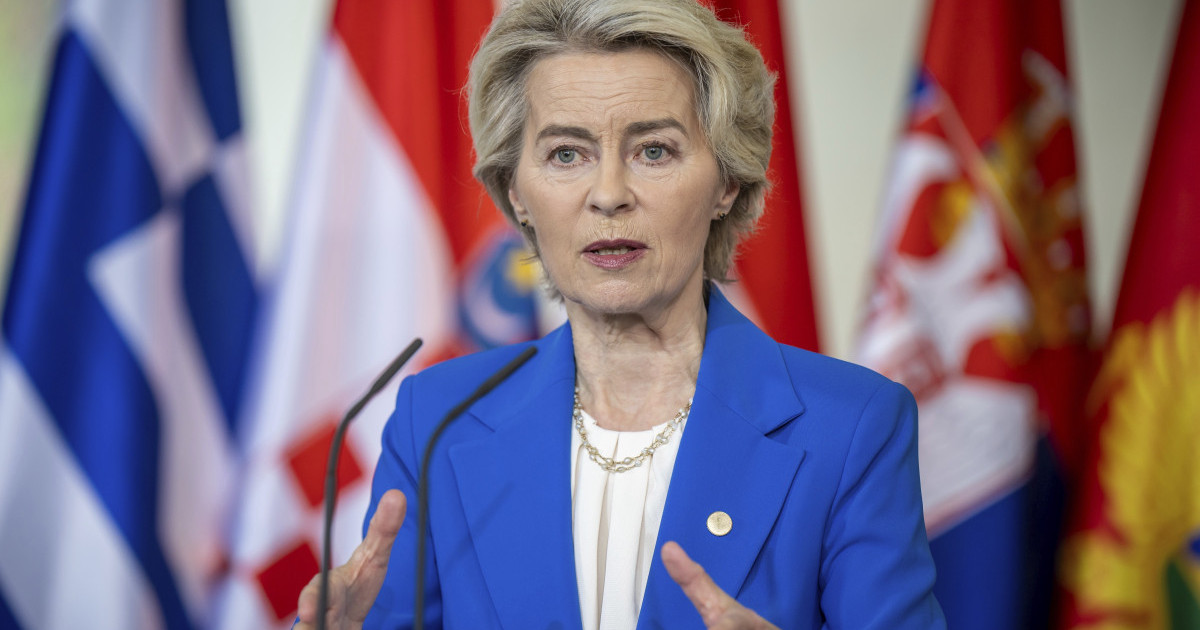
"What Happened with Vaccines is Happening Today with Weapons": Berliner Zeitung Criticizes EU Court Ruling Against Ursula von der Leyen
It took three years for a European Union court to establish what is obvious: the text messages exchanged between Ursula von der Leyen and Pfizer CEO Albert Bourla regarding the largest vaccine deal in EU history are relevant and the public has the right to see them, writes Berliner Zeitung in an article dedicated to today’s EU Court ruling against the President of the European Commission.
Since the beginning of the coronavirus crisis, the President of the European Commission has faced accusations of purchasing excessive quantities of vaccines from the American company Pfizer at inflated prices, as well as hiding text messages.
Von der Leyen has consistently emphasized that text messages are not official documents and that they did not concern contracts.
The Commission also stated that Ursula von der Leyen’s messages have since been "deleted" — a process that would trigger an investigation in any administration. However, in Brussels, this has not been a topic for years, writes the Berlin-based newspaper.
Who knows what the European Commission will come up with now to avoid disclosing the text messages. If they are eventually published, a much-needed investigation could finally be conducted.
In the scandal dubbed "Pfizergate," it will be necessary, among other things, to clarify whether Ursula von der Leyen acted independently and whether too many vaccines were ordered at too high a price. This can ultimately only be seen from the vaccine contracts.
The Commission claims that all these contracts have since been published. However, serious pressure from the media and the European Parliament was first needed for this to happen. Moreover, key parts of the contracts are blacked out.
The European Commission Does Not Want Transparency
The European Commission's refusal to ensure transparency reveals much more than they would like to admit. Those who negotiate for 1.8 billion doses of vaccines at an assumed price of 20 euros per dose or more are not acting in a private capacity but on behalf of around 450 million EU citizens.
This concerns their money (over 35 billion euros) and their health.
Ursula von der Leyen is not yet facing trial. So far, none of the accusations have had consequences for the former German defense minister, who has already been involved in previous scandals.
Incidentally, the "consulting scandal" during her time in Berlin also involved missing text messages.
Anyone who now thinks the Pfizer affair was an exception in a historically extraordinary situation is mistaken.
The same pattern is now reappearing in the comprehensive militarization at the EU level. Brussels plans to invest around 800 billion euros in the European defense industry by 2030.
Joint procurement of ammunition, new weapons factories, and direct contracts with industry are planned. Here too, transparency, control, and public debate are lacking.
It remains unclear who decides on setting priorities and on what legal basis these funds will be allocated.
At the same time, rules such as debt limits, which were considered untouchable for decades regarding investments in the social and healthcare sectors, are being abolished.
If the negotiations over vaccines gave the impression that Ursula von der Leyen effectively secured a monopoly for Pfizer through secret deals, it is legitimate to urgently ask: will the same approach be repeated in the defense industry?
A Warning Signal for the Future of the EU
The scandal over the vaccine contracts is not just a chapter of past pandemic policies but a warning for the future of the European Union.
Those who claim legitimacy must ensure transparency. Those who seek trust must be accountable. And those who wish to lead in democracy must be ready to be subject to control — especially when it comes to multi-billion euro amounts.
That is why the European Union urgently needs a binding and verifiable system of transparency for large contracts, and it needs it now. Otherwise, the often-invoked European solidarity will be reduced to a series of chat messages between the president and a pharmaceutical CEO — messages no one can read anymore.
The fact that the lawsuit for the disclosure of text messages was filed by a foreign media outlet — The New York Times — three years ago also says a lot about the state of the media landscape in Germany and Europe. A shift is needed here as well — the press must once again report critically and independently, concludes Berliner Zeitung.





